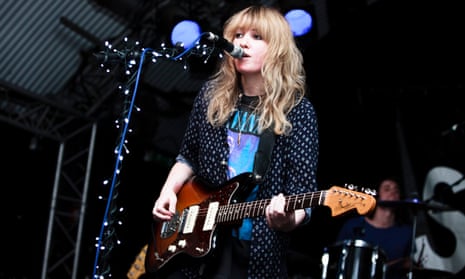More live music venues face closure in the next few years after Arts Council England (ACE) rejected an application for funding from the charity set up to defend their interests, it is claimed.
Beverley Whitrick, the strategic director of the Music Venue Trust, said she could not “even begin to guess” how many clubs will close before the next round of funding in 2022.
The council’s decision is likely to reignite the debate about its funding of “high” and “low” art. Of the £1.6bn allocated by the council to arts organisations in the latest funding round, about £367m went to those in the music sector. But 85% of this went to opera and classical music, according to the trust.
Among a number of clubs that have closed their doors in recent years are the Cockpit theatre in Leeds, where Amy Winehouse played, and the Sheffield Boardwalk, formerly the Black Swan club where the Sex Pistols, the Clash and Arctic Monkeys all performed. Since 2007, more than half of London’s 430 live music venues have closed. Business rates and rents are rising, while new residential developments in inner cities are seeing the venues hit with noise abatement orders. It is feared that, without funding, many more could go the same way.
“We are in a critical position with venues,” Whitrick said. “The next [ACE] funding round is in another four years. We can’t even guess how many venues will close in the next four years. That’s not ACE’s fault, but the fact that we cannot build the level of support we want to offer makes it more likely that more venues will close.”
Whitrick said the trust had been encouraged by the council to make a series of applications for almost half a million pounds, which would have been used to upgrade venues and help promote the sector. Similar initiatives have worked in the past. “ACE was so open to the idea of why this was needed and it was really encouraging,” Whitrick said.
“We thought we were winning the argument about these clubs being cultural venues, and so this feels like a slap in the face.”
A dearth of live music venues threatens the UK’s talent pipeline, according to those in the music industry. “Live venues are one of the few places where a new band can actually make a living, and the big problem is that the money which used to be there from recorded music has all but dried up,” Pink Floyd’s drummer Nick Mason said recently. “It’s really important we try to keep open these places where young bands can play and work.” The venues had believed that their pleas for support were being heard. The former culture minister, Ed Vaizey, said in 2015: “A vibrant music venue which is breaking new acts has just as much right to be considered a cultural venue as a local or regional theatre.”
“A lot of our venues don’t just put on pop music,” Whitrick said. “They will also put on jazz and folk, some put on theatre, and most put on comedy. A lot of the stuff they host, they know they are going to lose money on.”
Darren Henley, the ACE chief executive, said it had strived to ensure the new funding allocation was diverse and inclusive. “We are funding some incredible music organisations as part of the portfolio for the first time, including Readipop in Reading, contemporary music promoter Capsule in Birmingham, Loud in Libraries, NTS Live and Sound City in Liverpool. We also fund contemporary music through our other funding streams – for example, we’ve just announced that we’re funding Boiler Room’s coverage of this year’s Notting Hill carnival through our Ambition for Excellence programme.”
And he pledged: “We are acutely aware of the challenges faced by music venues across the country and will continue to look at ways to work strategically with the sector to address them.”
The council received many more applications than it can fund, meaning there were always organisations which end up disappointed.
But Whitrick said there was now an urgent need for grassroots music venues to receive public funding. “If they were commercial, they wouldn’t be dropping like flies,” she said. “They are the bit at the bottom of the industry that doesn’t make money and helps develop the talent that then gets taken away from them once the artists start being more successful.”
THE BIG WINNERS
RECIPIENTS OF ARTS COUNCIL FUNDING 2018-2022
£96m Royal Opera House
£73m Southbank Centre
£67m National Theatre
£59m Royal Shakespeare Company
£41.5m Opera North
£24.5m Welsh National Opera
£14m North Music Trust
£12.5m Northern Ballet
£8.8m London Symphony Orchestra
£8.2m London Philharmonic Orchestra

Comments (…)
Sign in or create your Guardian account to join the discussion